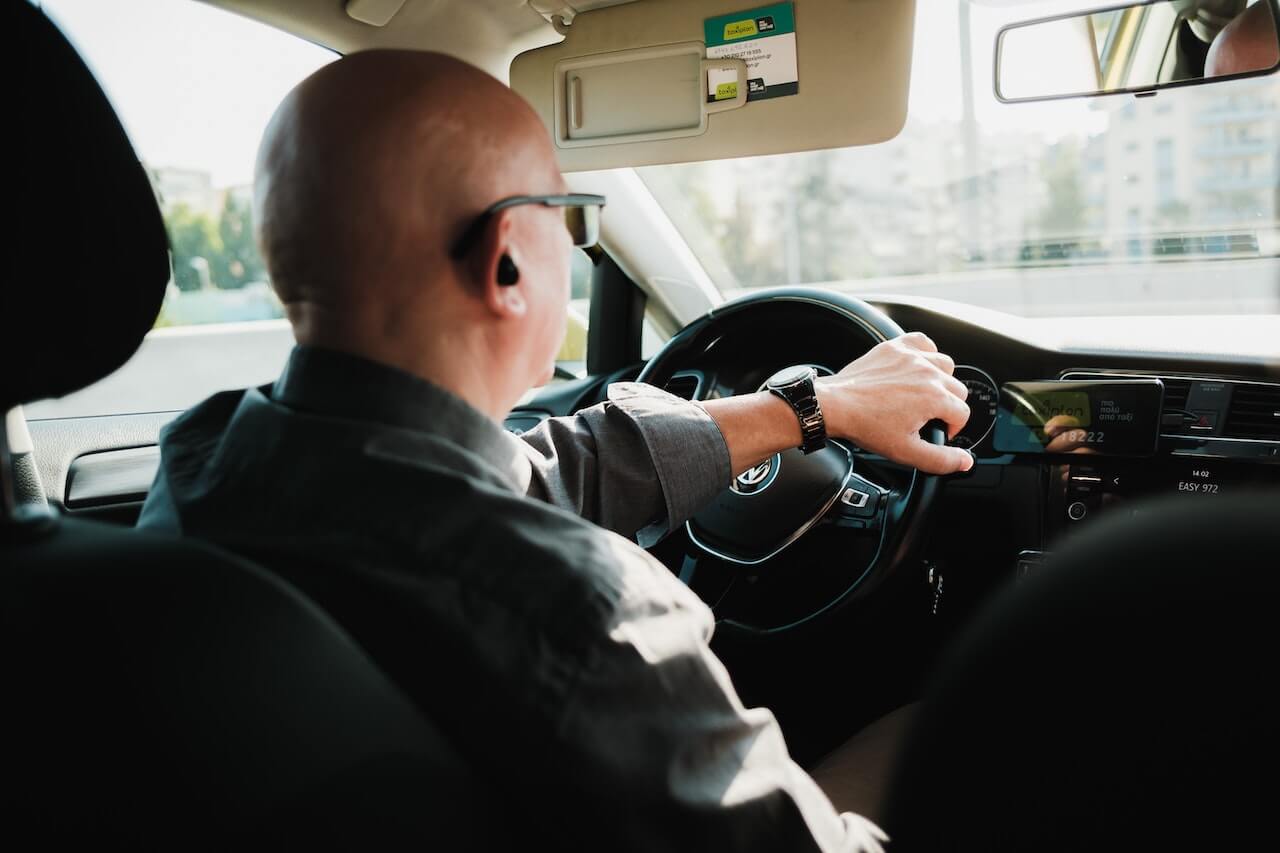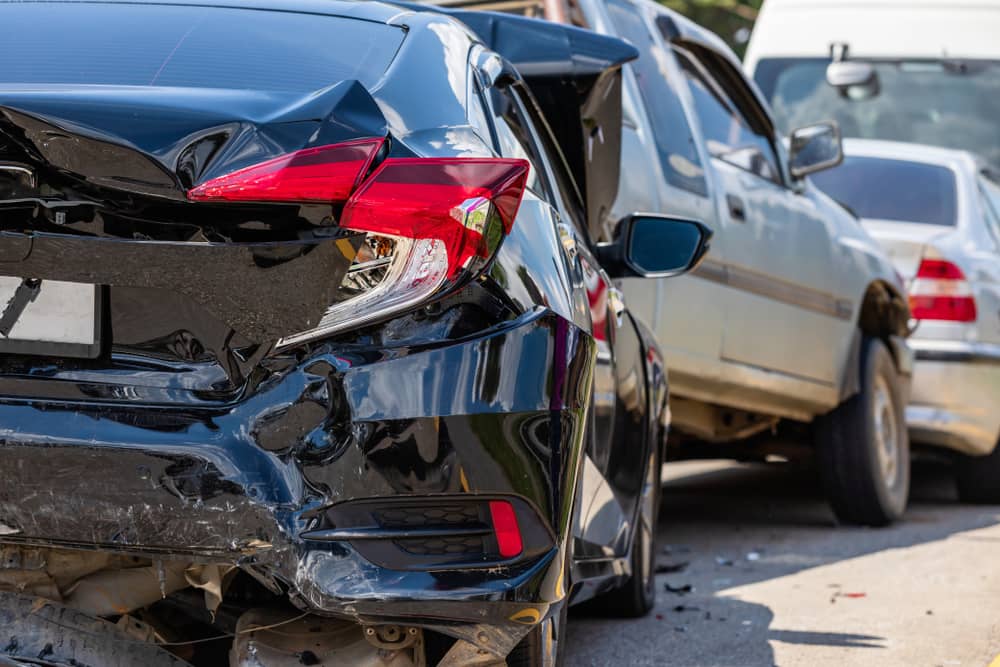Your Road to Compensation
A rideshare accident is a type of car accident that involves a vehicle associated with a ridesharing service, like Uber or Lyft. These accidents typically occur when a rideshare driver who is working for a company like Uber and Lyft and transporting passengers is involved in a collision.

What to Do After an Uber or Lyft Accident
If you are involved in an Uber or Lyft accident in Tennessee, it’s essential to take the following steps:
- Seek medical attention for any injuries promptly.
- Report the accident to the rideshare company through their app or website.
- Gather evidence, such as photos, witness information, and insurance details.
- Consult with an experienced personal injury attorney who focuses on rideshare accidents to help you navigate the complex insurance and legal processes.
Understanding Tennessee’s laws and regulations related to rideshare accidents can help protect your rights and ensure you receive the appropriate compensation if you are injured in such an accident. You are likely to find that the at fault driver is responsible for financial compensation.
Will Uber or Lyft Pay for a Car Accident?
Yes, Uber and Lyft provide insurance coverage for their drivers and passengers involved in car accidents, but the coverage and the circumstances under which it applies can vary based on the driver’s status at the time of the accident.
If the rideshare driver is not actively using the Uber or Lyft app (i.e., they are offline or not logged in), their personal auto insurance policy is the primary coverage in case of an accident. Uber and Lyft’s insurance generally does not apply in this scenario.
When a driver is logged into the Uber or Lyft app but has not yet accepted a ride request, the rideshare companies provide contingent liability coverage. This coverage typically includes:
Third-party liability coverage for bodily injury and property damage, which is lower than the coverage provided when the driver is on a trip. Limited coverage for the driver’s own injuries or vehicle damage, subject to a deductible.
Accidents Involving a Rideshare Vehicle
Rideshare accidents can involve various scenarios, such as:
Accidents While Picking Up or Dropping Off Passengers: A ridesharing accident may occur when the rideshare driver is en route to pick up a passenger or is dropping off a passenger at their destination.
Accidents During Transit: Rideshare drivers may be involved in accidents while transporting passengers to their intended destinations.
Collisions with Other Vehicles: Rideshare vehicles can be involved in accidents with other cars, trucks, motorcycles, or pedestrians, similar to any other motor vehicle accident.
Single-Vehicle Accidents: These accidents occur when the rideshare driver’s vehicle is the only one involved in the incident, such as hitting a stationary object or rolling over.
A Lyft or Uber accident can result in injuries to passengers, drivers, pedestrians, or occupants of other vehicles involved. In Uber and Lyft accidents, determining liability and insurance coverage can be complex due to the commercial aspect of ridesharing services. This is why hiring a Nashville rideshare accident lawyer is so important.
The rideshare company will typically provide insurance coverage for their drivers, but the specific coverage may vary depending on the driver’s status at the time of the accident. For instance, whether they had a passenger in the car or were between rides may be the difference between the insurance company willingly covering the car accident and fighting. Navigating the legal and insurance aspects of rideshare accidents requires rideshare accident legal knowledge, which is exactly what our Nashville car accident lawyers handling vehicle accident claims at Meyers Injury Law have.

What Tennessee Laws are in Place to Protect Drivers Who Get in an Uber or Lyft Accident?
While no car accidents are simple or easy, an accident with an Uber or Lyft driver is even more complicated. You may find the rideshare driver doesn’t have the insurance required. Thankfully, there are laws, rules, and regulations in place that protect accident victims such as yourself.
In Tennessee, there are specific laws and regulations in place to protect passengers involved in Uber or Lyft accidents, as well as to ensure that rideshare companies provide insurance coverage for their drivers and passengers. Here are key aspects of Tennessee laws related to rideshare accidents:
Insurance Coverage Requirements: Tennessee law (Tennessee Code Annotated § 56-7-1801) mandates that ridesharing companies like Uber and Lyft must maintain liability insurance coverage that meets or exceeds the following requirements:
- At least $50,000 for death and bodily injury per person.
- At least $100,000 for death and bodily injury per accident.
- At least $25,000 for property damage per accident.
This insurance coverage is designed to protect passengers and others who may be injured in accidents involving rideshare vehicles.
Insurance Coverage Triggers: Insurance coverage provided by rideshare companies typically depends on the driver’s status at the time of the accident:
#1 When a driver is not actively engaged in a ride (i.e., they are waiting for a ride request), the driver’s personal auto insurance policy typically applies.
#2 Once a driver accepts a ride request and is en route to pick up a passenger or has a passenger in the vehicle, the rideshare company’s insurance coverage takes over.
Rideshare companies like Uber and Lyft generally provide additional uninsured and underinsured motorist coverage to protect passengers and drivers in cases where the at-fault party lacks sufficient insurance.
Background Checks: Tennessee law requires rideshare companies to conduct background checks on their rideshare drivers, including criminal background checks, driving history checks, and other screenings to ensure passenger safety.
Driver Eligibility: Rideshare companies must ensure that their Uber and Lyft drivers meet certain eligibility criteria, including age, licensing, and vehicle requirements.
Compliance with Federal Laws: Rideshare companies must also comply with federal regulations governing transportation network companies (TNCs) and ridesharing services.
In addition to these, ridesharing vehicles must also comply with the rules of the road that all over drivers do. This includes not drunk driving, how many passengers they can have, going home before drowsy driving, and more. If you were in an accident involving a Lyft or Uber driver who broke the law in any way, you may have the basis for a personal injury claim.
What Serious Injuries Are Common From an Accident With an Uber or Lyft Vehicle?
Rideshare drivers owe a duty to other drivers on the road. When they make errors or are negligent drivers, serious injuries can result. A few of the most common include:
Whiplash: Whiplash is a neck injury that occurs when the head is suddenly jerked backward and then forward, similar to the motion of a whip. It is a common injury in rear-end collisions and can result in neck pain, stiffness, headaches, and other symptoms.
Fractures: Fractures or broken bones are common in car accidents, especially when there is a high impact. Common fracture sites include ribs, arms, legs, collarbones, and facial bones.
Head Injuries: Head injuries in car crashes can vary from minor concussions to more severe traumatic brain injuries (TBIs). Symptoms may include confusion, loss of consciousness, memory problems, and cognitive impairments.
Spinal Injuries: Car accidents can cause spinal injuries such as herniated discs, vertebral fractures, and spinal cord injuries. Severe spinal injuries can result in paralysis, while milder cases may lead to chronic pain and limitations in mobility.
Soft Tissue Injuries: Soft tissue injuries can include strains, sprains, and contusions (bruises). These injuries can affect muscles, tendons, ligaments, and other soft tissues in the body. They often result from sudden impacts or abrupt movements during a collision and can cause pain, swelling, and limited range of motion.
These five are very common, but far from the other injuries that happen from an accident involving a rideshare driver. Ridesharing accidents can result in a wide range of injuries, even death. This is why having the at fault driver cover your medical bills is fair and just.
Tennessee Statute of Limitations
In Tennessee, the statute of limitations for filing a rideshare accident claim varies depending on the nature of the claim. Generally, the following time limits apply:
Personal Injury Claims: If you are filing a personal injury claim as a result of a rideshare accident in Tennessee, you typically have one year from the date of the accident to file your claim. This means you must initiate legal proceedings within one year of the accident date.
Property Damage Claims: If you are seeking compensation for property damage, such as damage to your vehicle, Tennessee law also provides a one-year statute of limitations from the date of the accident.
Wrongful Death Claims: In cases where an accident results in a wrongful death, the statute of limitations is typically one year from the date of the individual’s death, not necessarily the date of the accident.

Rideshare Accident Lawyer Nashville
You’re likely facing medical expenses and lost income. It’s time you explore your legal options. Contact us today to set up a free case consultation. We can handle all of the complicated aspects of your case, from understanding insurance policies to proving it was the driver’s fault to recovering lost wages and more. Contact our legal team at (615) 560-7278 to move your case forward.












